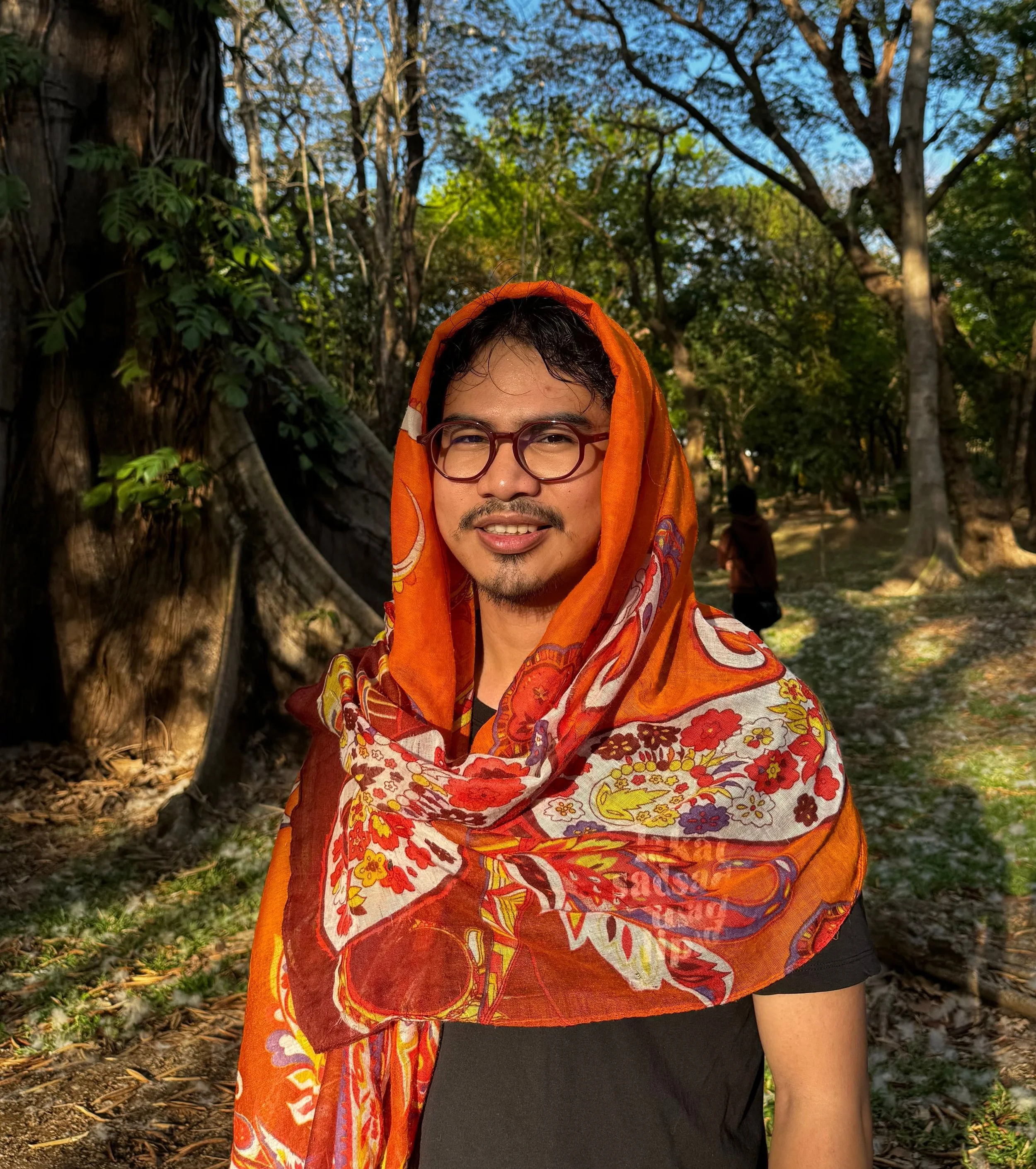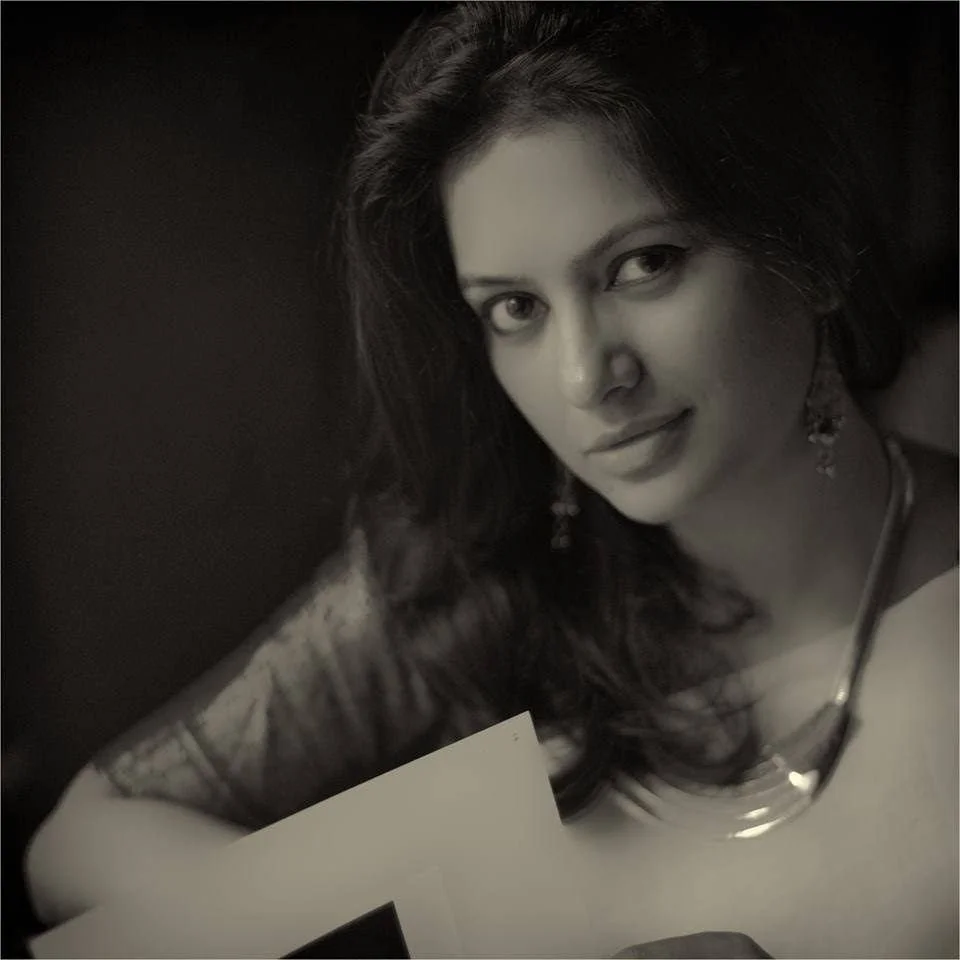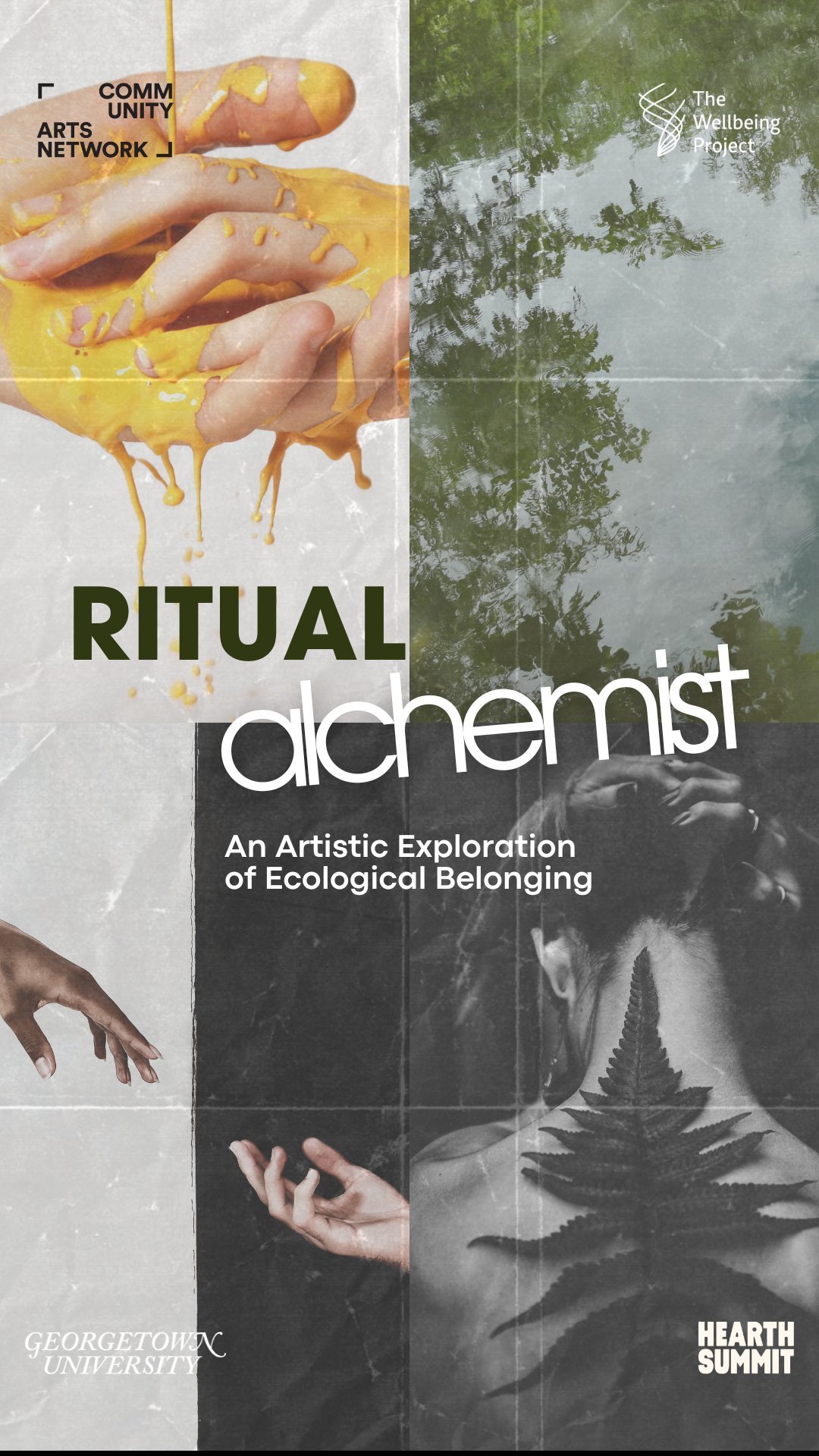
Artistic Exploration
Ritual Alchemist
In collaboration with the Community Arts Network, 8 passionate and dynamic individuals have been taking on the role of “Ritual Alchemist” to help create a unique and magical vision, along with the local community, around the concept of Ecological Belonging.
Ritual Alchemists are artists who creatively reimagine and renew local rituals, integrating them into contemporary culture.
Ritual Alchemists are community connectors who collaborate with local residents to explore and celebrate cultural traditions.
Meet this Year’s Ritual Alchemists
Eight The Wellbeing Project’s Hearth Summits include Ritual Alchemists in 2024 and early 2025 are in Austria, Bangladesh, Brazil, Colombia, India, Japan, The Philippines and Senegal. Read more below.
-

Angelika Lauber – Alpbach, Austria
Angelika Lauber is interested in harnessing the power of creativity to promote cultures of wellbeing, collective empowerment and regeneration. She works in a variety of roles, as an artist, facilitator, educator, beekeeper and storyteller. Her projects focus on reconnecting people to the more than human world, bridging the gap between past, present and future, and integrating the intelligences of our head, heart and hands. Her artistic practice is informed by her training as a social scientist at the University of Cambridge, as well as the philosophies of deep ecology, systems thinking and permaculture.
-

Antoine Ndega Boubane – Dakar-Thiès, Senegal
Antoine Indega Boubane, known as Black Keme, is a versatile artist from the village of Ethiolo, in southeast Senegal. He embodies the fusion between tradition and modernity in African music. Black Keme began his artistic journey in 2007 in a church choir at age 13. He co-founded the collective BFB (Bassari Flash Back) and began his solo career a decade later with a hit song in his local O'nyane language, which invites Bassari youth to preserve their culture. He was later honoured as an Ambassador of Bassari Culture, a title that reflects his dedication to preserving the cultural heritage of his region.
-

Francine Kliemann - São Paulo, Brazil
Francine Kliemann is an immersive experience designer. Her work explores new ways of learning and connecting to the world through imagination and play. She is founder and director of Platô Cultural, a company that creates immersive and participatory experiences in Education and Community Settings. Based in Florianópolis, Brazil, Platô Cultural combines immersive storytelling and new technologies to create playful experiences that nurture the individual and the collective learning, looking for new relationships between people and places. Its current project is “School of the (Im)Possible”, an immersive education experience for 8 to 10-year-olds.
-

Irene Rodríguez - Cali, Colombia
Irene Rodríguez is an Interdisciplinary Designer in Theater and Performing Arts, specialising in Anthroposophic Singing Therapy. She designs experiments aimed at discovering a sonic and energetic technology from voice and listening to stir social imagination, creation and vitality. Sound creation is a possibility to relate to the invisible dimensions of reality and expand bridges to recognise the interdependence with what surrounds us. By singing and inventing a language, "uma-língua-nenhuma" or "a language-dead-yet-to-be-born," Irene aims to open a poetic realm of creating other possible worlds, proposing a state of listening from uncertainty and trust in the power and strength of our voice.
-

Riku Matsuzaki – Kyoto, Japan
Riku Matsuzaki is an artist from Kyoto and a master of Kyoai (Kyoto indigo) dyeing. He is an indigo dyeing specialist who has revived "KYOAI (Kyoto indigo)," which disappeared 100 years ago, and reproduces indigo dyeing techniques from 700 years ago to create genuine indigo dye that does not bleed. After encountering indigo dyeing in New York in 2013, Matsuzaki underwent a long ten-year period of training. Based on the concept of "wrapping life with the color of life," he established his own studio in Kyoto to produce art products using natural dyeing techniques. He even practices the organic cultivation of KYOAI (Kyoto indigo) used for the dye.
-

Poornima Sukumar – Bangalore, India
Poornima Sukumar is an Indian artist and social activist known for her pioneering work in empowering the transgender community through art. She is the founder of the Aravani Art Project, an initiative aimed at creating awareness and promoting the rights of transgender individuals by involving them in public art projects. Poornima combines her passion for art with her commitment to social justice. With a background in visual arts, she has worked on various art projects that engage with various kinds of people and communities, including indigenous people, sex workers, tribes, women and children from lower economic backgrounds.
-

Steve Manzano - Philippines
Steve Manzano is an artist-cultural worker whose practice overlaps with community work. He practices socially engage art and intersects with performance, painting, and installation. Originally trained as an educator, Steve has tried to integrate his education practice in artistic production through intervention of the public art. His projects and initiatives are community-based collaborations, alternative education, art therapy, and street art. As a response to the need for educational innovation, he seeks to contribute to activating spaces and platforms to foster narrative exchanges in the community in the Philippines through creative methodology and production.
-

Ayreen Khan - Bangladesh
Ayreen Khan is a visual artist, writer, researcher and social actor. Her artwork portrays visions of spiritual awakenings through mystical states, exploring life and asking questions. Her images are vivid, translating themes from world traditions such as Tasawwuf/Sufism, Tantra, Buddhism, and sacred geometry by using a personalised form of spiritual symbolism. A blend of oriental and occidental mythological connections is found in her work. Ayreen’s work depicts infinite forms within formless time and space, reflecting our life stories and situations. The art points at love, rage, grief, pain, violence, beauty, ugliness, pleasure, separation and unification. Her work has been described as her personal journey of healing, awakening, becoming and unbecoming.
What are regional Hearth Summits?
Building on the success of The Wellbeing Project’s (TWP) first-ever global Wellbeing Summit for Social Change in 2022, the wellbeing movement is growing around the world!
The regional Hearth Summits are an invitation for changemakers worldwide to explore and celebrate wellbeing for social change through themes such as the arts, trauma and healing, ecological belonging, community and belonging, and systems change. Hosted by members of TWP’s global network, these summits mark an incredible evolution of our collective journey to catalyze a culture of wellbeing for all changemakers. Together, we are cultivating the growth and global reach of the wellbeing for social change movement, empowering communities to create lasting social change by starting within.


